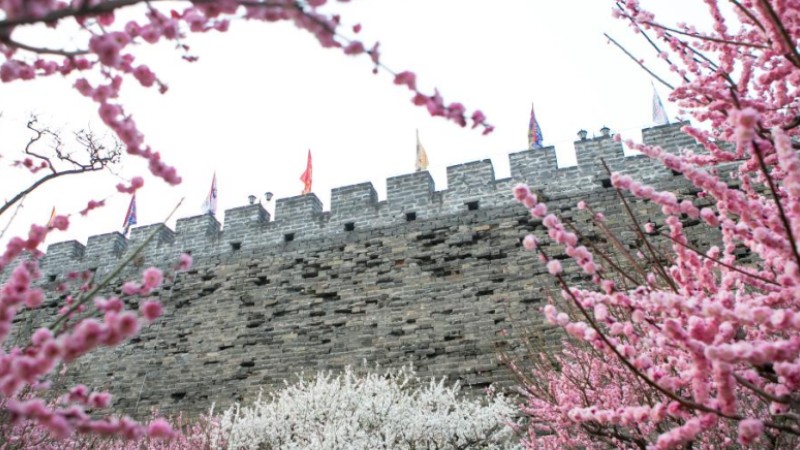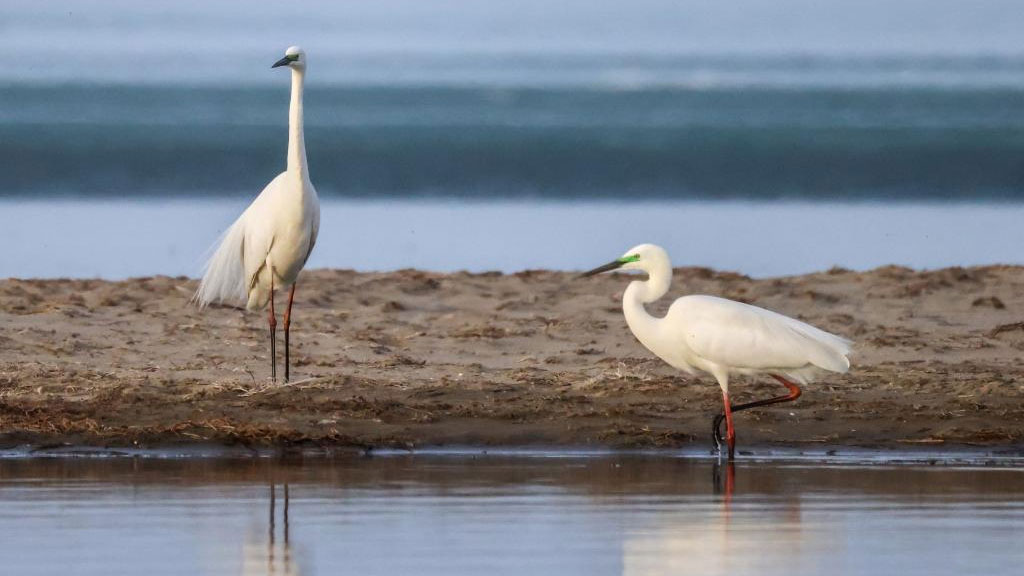China-Russia ties a global stabilizer

JIN DING/CHINA DAILY
President Xi Jinping's state visit to Russia from Monday to Wednesday is his first foreign trip after being re-elected China's president earlier this month.
The visit has drawn international attention because it comes just after the first anniversary of the Russia-Ukraine conflict, and many expect Xi to promote peace talks between Moscow and Kyiv.
The meeting between the two heads of state is expected to further strengthen the China-Russia comprehensive strategic partnership of coordination in the new era.
The Chinese and Russian leaders have been visiting each other's country at regular intervals. Since 2013, Xi and Putin have held 40 meetings and discussed many bilateral and international issues including how to strengthen bilateral ties, better protect regional security, democratize international relations, improve global governance, facilitate global development, and help build a community with a shared future for mankind.
China and Russia have bolstered strategic mutual trust, and good-neighborly and friendly relations, creating a new pattern of international relations. China-Russia ties are a win-win pattern which includes features such as comprehensive strategic coordination without alignment, closely cooperating but with independent policies, safeguarding of their national interests without targeting each other, dealing with global issues, and settling disputes through consultation.
Why have China-Russia ties strengthened despite increasing global turbulence? The answer lies in the fact that, despite being major countries, China and Russia have been cooperating to help stabilize the global situation and have formulated domestic and foreign policies in accordance with the interests and demands of their own country and people without targeting any third party.
Trade and economy have been the foundation of bilateral ties. For example, the bilateral trade volume in 2022 increased by 34.3 percent year-on-year to reach 1.28 trillion yuan ($185.41 billion). While China's exports of mechanical and electrical products to Russia increased by 9 percent, and automobiles and auto parts by 54 percent, energy trade hit $33.78 billion in the first two months of 2023, up 36.4 percent year-on-year.
Besides, people-to-people exchanges between the two sides have enriched bilateral ties, thanks to the many China-Russia Year of Exchange themes such as language, tourism, youth and the media. For example, the sports-themed 2022-23 China-Russia Year of Exchange has been a great success.
No wonder many expect Xi's ongoing visit to Russia to boost China-Russia win-win cooperation and promote the integration of the China-proposed Belt and Road Initiative and Russia's Eurasia Economic Union.
True, the two countries have pledged to abide by non-alignment, non-confrontation and non-targeting of any third country. But non-targeting of a third country does not mean allowing a third party to interfere in the internal affairs of either China or Russia.
On the Russia-Ukraine conflict, China refuses to take sides because it has good relations with both Russia and Ukraine, but it disagrees with the North Atlantic Treaty Organization which has been using the Ukraine crisis to wage a proxy war against Russia.
The US-led NATO is a legacy of the Cold War which should have been dissolved after the collapse of the Soviet Union. But instead of dissolving NATO, the Western powers have been expanding it eastward, triggering disputes with Russia.
After gaining independence, Ukraine promised to give up nuclear weapons, not join NATO and remain neutral. But it broke the last two promises, worsening the security situation in Eurasia and posing a threat to Russia, which sparked the current conflict.
On the Russia-Ukraine issue, China has adhered to the United Nations Charter and basic norms of international relations. China stands with justice and peace, and has consistently called for peace talks to help end the conflict, which was demonstrated once again in the document titled "China's Position on the Political Settlement of the Ukraine Crisis" released in February.
So during Xi's visit to Russia, China will stick to its objective position and try to play a constructive role in brokering peace between the warring sides. But whether the Ukraine crisis can be peacefully resolved or not depends on the policies and actions of the US-led NATO, especially because the United States has been comparing the Ukraine crisis with the Taiwan question, in order to further interfere in China's internal affairs.
However, the Taiwan question is totally different from the Russia-Ukraine conflict, as Ukraine is a sovereign country and Taiwan is an inseparable part of China. The Taiwan question is purely a domestic issue of China.
Russia has taken a clear position on the Taiwan question. "The Russian side reaffirms its support for the one-China principle, confirms that Taiwan is an inalienable part of China, and opposes any form of independence of Taiwan," said the China-Russia joint statement on Feb 4 in 2022.
Amid rising uncertainties around the world, President Xi's visit to Russia will not only strengthen China-Russia relations but also help restore global peace and promote global development.
Photos
Related Stories
- Commentary: Closer China-Russia ties vital to building a multipolar world
- Chinese FM expounds on Xi's state visit to Russia
- Highlights of Xi and Putin's talks in Russia
- Xi returns to Beijing after state visit to Russia
- CIIE becomes important driving force for expanding China-Russia economic and trade cooperation
Copyright © 2023 People's Daily Online. All Rights Reserved.









